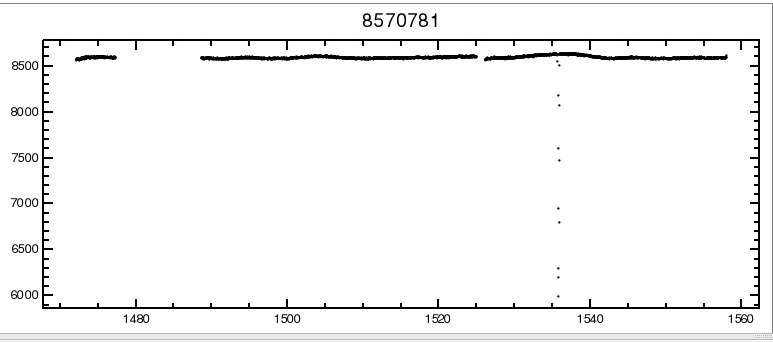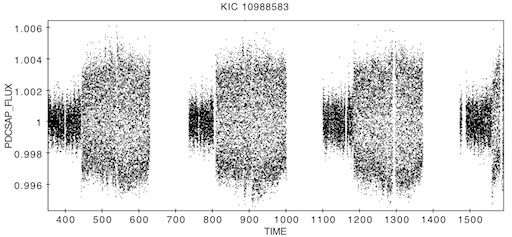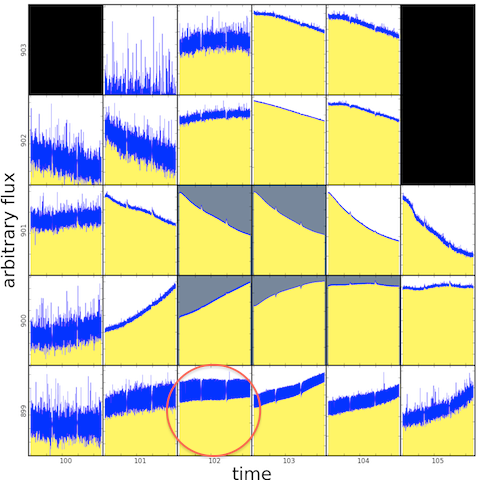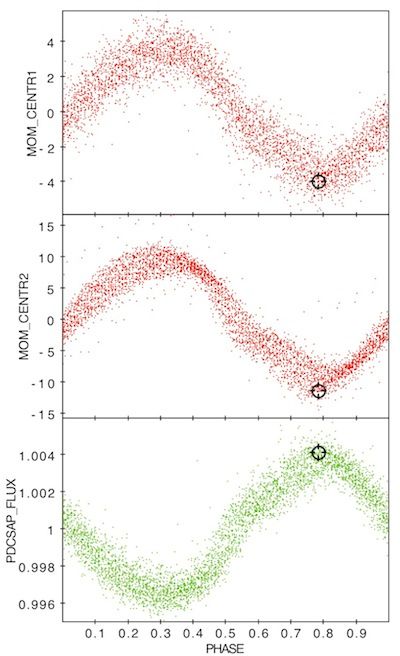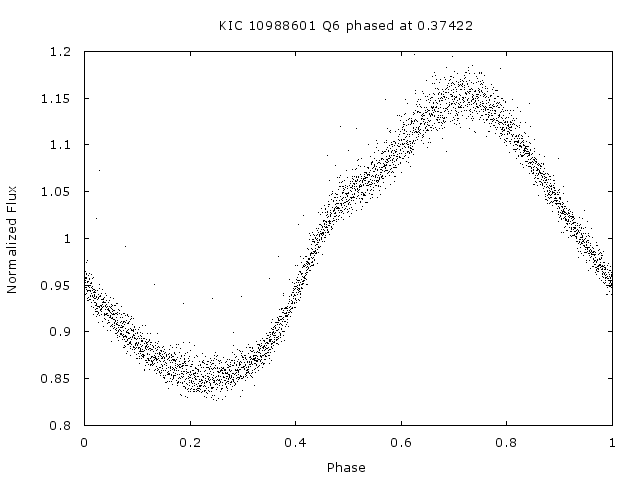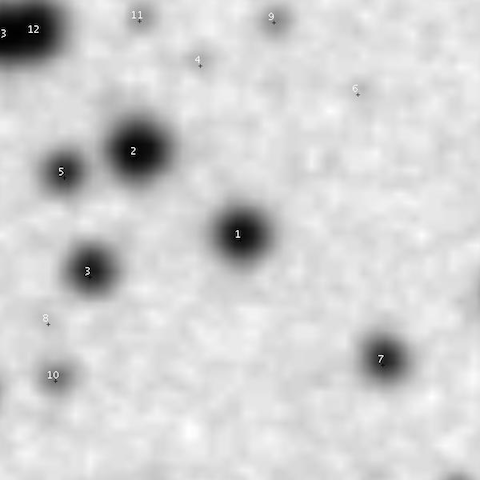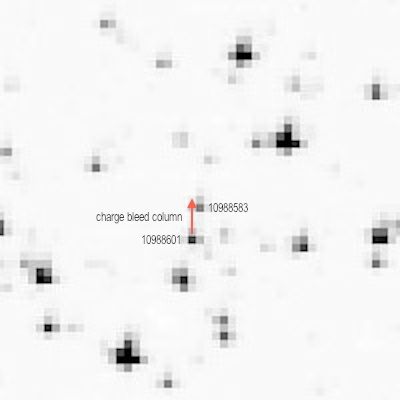NEA Q16 Light Curve for KIC 8570781
This Q16 light curve shows a long period detached eclipsing binary transit for KIC 8570781. Unfortunately, with the Kepler spacecraft no longer in operation, we will not be able to determine the EB's period.
You can view the thread at Planet Hunters forum Talk page here.
Resurvey of Legacy Kepler Short and Long Cadence Light Curves
Saturday, January 25, 2014
Unlisted RR Lyrae type C - KIC 10988601 contaminating KIC 10988583
Light Curve for KIC 10988583 contaminated by RRL type C KIC 10988601 by Kian Jek
Planet Hunters forum Talk member Mike Barrett (mjtbarrett) posted an interesting LC for KIC 10988583 that has a phased curve indicative of a RRL type C. With forum Talk members assistance, the actual RRL type C was narrowed down in the Kepler field of view to star KIC 10988601.
Kian Jek's comments:
Planet Hunters forum Talk member Mike Barrett (mjtbarrett) posted an interesting LC for KIC 10988583 that has a phased curve indicative of a RRL type C. With forum Talk members assistance, the actual RRL type C was narrowed down in the Kepler field of view to star KIC 10988601.
Kian Jek's comments:
You can read more about this star on the Planet Hunters forum Talk thread here.
The phased curve certainly does have RRc characteristics but the amplitude is off. An inspection of the entire light curve tells us straight away that this is contaminated flux:
But where is it coming from? Looking at the Q6 TPF, it is clear that the contamination is in the halo pixels vertically below the target pixels.
There are in-phase APOs as well:
To cut a long story short, here's the phased curve from that one halo pixel in Q6, col 102 row 899, normalized and it now does match the amplitude and period of a typical RRc variable:
From the TPF, and the APO vector, it appears that the contaminating RRc is KIC 10988601, #2 in the Skyview image:
Even though 601 is more than 10 arcseconds away from the target, after re-orientation, it is directly below and one pixel to the left of the target. It is very likely there is a charge bleed along the column indicated since it is brighter than the target, causing it to contaminate that halo pixel. A quick check of the MAST parameters for KIC 10988601 tells us that it has a Teff of 7169K (F0/A9) and an estimated stellar radius of 2.287, almost exactly what we need for an RRc pulsator.
Subscribe to:
Comments (Atom)
An Automated Search for Transiting Exocomets- HD 182952 (KIC 8027456)
A team of astronomers led by Grant M. Kennedy , discovered a potential third comet system in the Kepler prime field data of HD 182952 (KIC...

-
Earth size Exomoon orbiting a Saturn- like planet - Wikipedia If an exomoon is going to be observed in the Kepler light curves it will h...
-
There has been lots of exciting news about alien worlds recently with the announcement of confirmation studies for over 41 Kepler exo...
-
Comment by Kian Jek: "So far, Planet Hunters have found three background dwarf novae (DN) candidates in the Kepler public data, and ...
